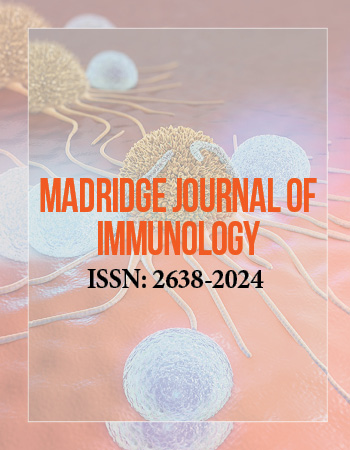International Conference on Immunology and Immunotechnology
November 1-3, 2017 Barcelona, Spain
Pathological Manifestations in Lymphatic Filariasis Correlate with Lack of Inhibitory Properties of IgG4 Antibodies on IgE-Activated Granulocytes
1Institute of Medical Microbiology, Immunology and Parasitology (IMMIP), University Hospital Bonn, Germany
2German Center for Infectious Disease Research (DZIF), Germany
3University Abomey -Calavi, Faculty of Health Sciences (FSS), Germany
Helminthes parasites are known to be potent modulators of their hostʼs immune system. To guarantee their survival, they induce alongside the classical Th2 a strong regulatory response with high levels of anti-inflammatory cytokines and elevated plasma levels of IgG4. This particular antibody was shown in different models to exhibit immunosuppressive properties. How IgG4 affects the etiopathology of lymphatic filariasis (LF) is however not well characterised. Here we investigated the impact of affinity-purified IgG4 positive and negative fractions from endemic normals (EN), LF infected pathology patients (CP), asymptomatic microfilaraemic (Mf+) and amicrofilaraemic (Mf-) individuals on IgE/IL3 activated granulocytes. The activation and degranulation states of the granulocytes were monitored using the expression of CD63/HLADR and the release of granule contents (neutrophil elastase (NE), eosinophil cationic protein (ECP) and histamine) by flow cytometry and ELISA respectively. Our results indicate that affinity-purified IgG4 antibodies from EN, Mf+ and Mf- individuals bound granulocytes and inhibited activation and the release of ECP, NE and histamine. In contrast, IgG4 from CP could not bind granulocytes and presented no suppressive capacity. More interestingly, a significant reduction of the anti-inflammatory effect on granulocytes was reached only when FcγRI and FcγRII were blocked simultaneously. These data indicate that IgG4 antibodies from Mf+, Mf- and EN, in contrast to those of CP exhibit FcγRI/II-dependent suppressive properties on granulocytes. Our findings suggest that both quantitative and qualitative alterations in IgG4 molecules are associated with the different clinical phenotypes observed in LF endemic regions.
Biography:
Dr. Tomabu Adjobimey completed his PhD Studies on the modulation of antibodies secretion by regulatory T cells at the University of Bonn, Germany. He did his Postdoc at the Institute for Medical Microbiology, Immunology and Parasitology, University of Bonn, Germany. Since 2011, he was working as a Group leader, with focus on the mechanisms of parasite-induced immune tolerance in human at Institute for Medical Microbiology, Immunology and Parasitology, University of Bonn, Germany.


